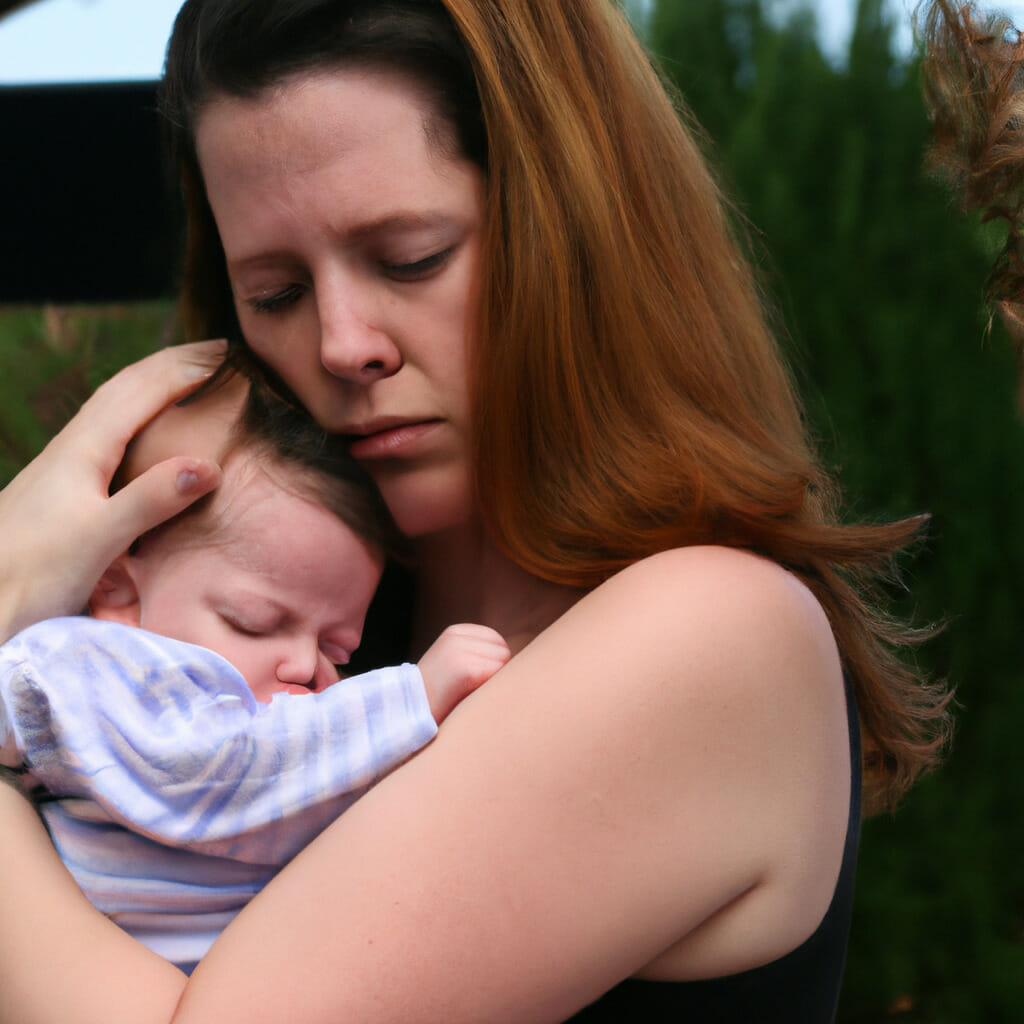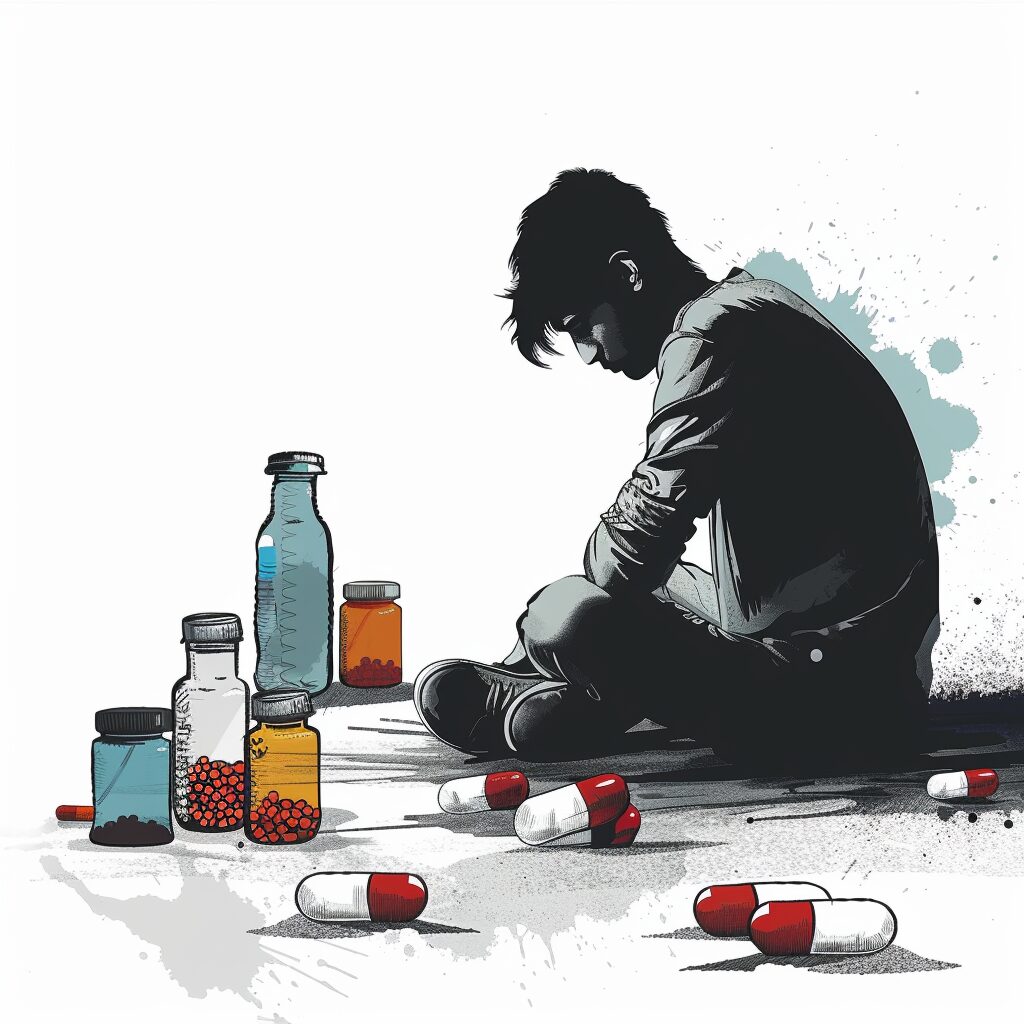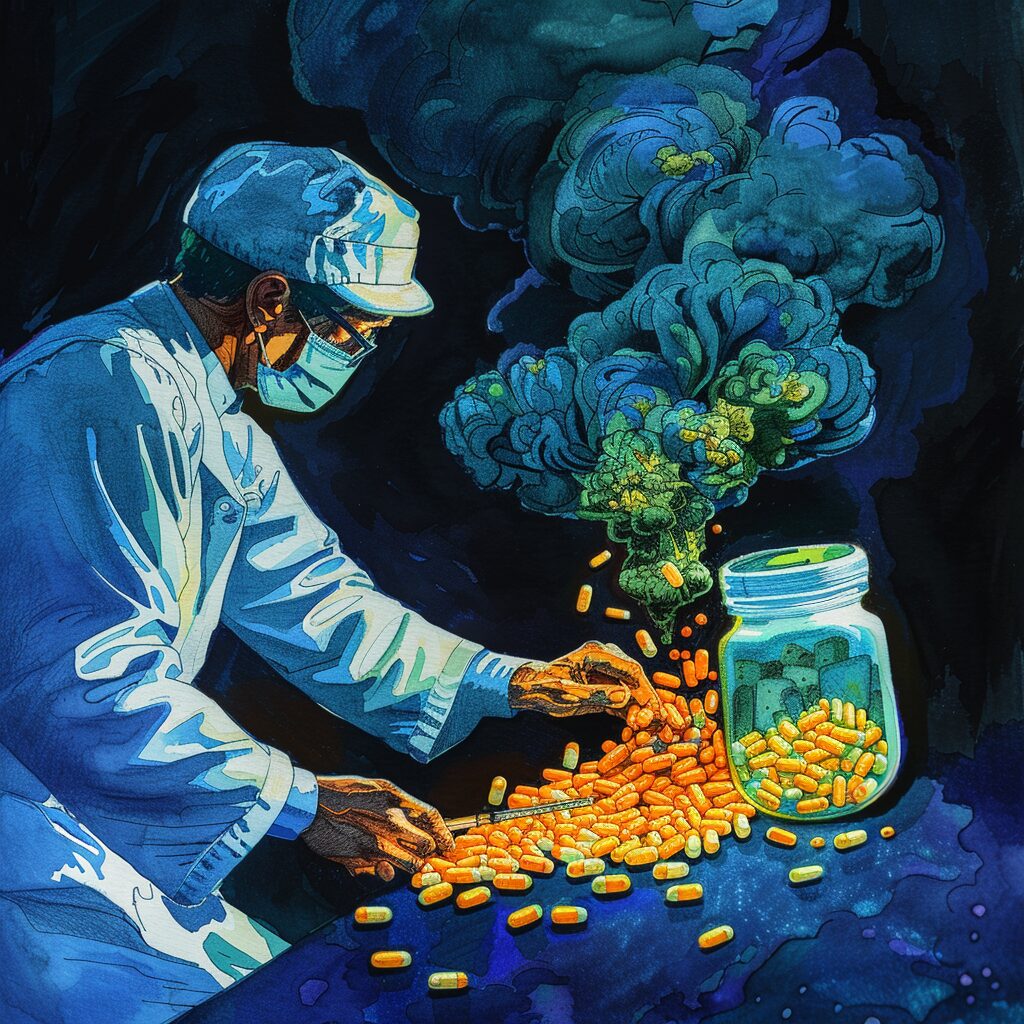Key Takeaways:
- Identifying postpartum depression symptoms is crucial for early treatment: It is important for new mothers to be aware of the symptoms of postpartum depression, which may include anxiety, mood swings, and social isolation. Early diagnosis and treatment can prevent the condition from worsening and reduce the risk of addiction.
- Self-medicating to cope with postpartum depression symptoms can lead to addiction: New mothers may turn to drugs or alcohol to alleviate the symptoms of postpartum depression. However, self-medicating can lead to addiction and worsen the condition over time.
- Treatment options for postpartum depression and addiction include therapy, medication, and support groups: Cognitive behavioral therapy, medication-assisted treatment, and support groups can be effective in managing symptoms and helping new mothers overcome postpartum depression and addiction. Seeking professional support early on and building a strong support network can also help prevent these conditions.
Have you been struggling with addiction and postpartum depression? If so, you are not alone. This article explores the connection between postpartum depression and addiction and how to find help.
Understanding Postpartum Depression
As a mother myself, I know firsthand the challenges of navigating the postpartum period. However, for some new mothers, the difficulty can extend into a more serious issue – postpartum depression (PPD). In this section, we will dive deeper into understanding PPD, and how to identify its symptoms.
It is important to realize the scope of this affliction, as nearly 10% to 20% of new mothers in the United States experience PPD, making it the most common complication of childbirth. With that in mind, let s explore the expansion of the issue and learn how to recognize PPD in ourselves or someone we know.

Identifying Postpartum Depression Symptoms
Identifying Postpartum Depression Symptoms is crucial for new mothers, as it can significantly affect their mental and emotional health. Postpartum depression is not just feeling down or sad after giving birth; it’s a severe mood disorder that affects one in seven women. The symptoms usually develop anywhere from a few weeks to several months after giving birth, making early identification essential.
To identify Postpartum Depression Symptoms, one must understand how it works. After childbirth, the body goes through many hormonal changes that can trigger emotional highs and lows. These changes often cause feelings of sadness, anxiety, and irritability commonly referred to as “Baby Blues.” However, when these feelings last longer than two weeks and start interfering with daily activities such as sleeping or bonding with the infant, they might be symptoms of postpartum depression.
Identifying Postpartum Depression Symptoms involves looking out for physical changes such as loss of appetite or overeating, fatigue, insomnia or oversleeping, decreased concentration and motivation levels, feelings of worthlessness or guilt, mood swings or intense anger episodes. One might also experience withdrawing from friends and family members or show low-interest levels towards the baby.
Postpartum Depression requires urgent medical attention due to its impact on the mother-child relationship’s long-term effects. Hence new mothers should keep a close eye on any psychological shifts they go through during this period.
Remember that identifying Postpartum Depression Symptoms doesn’t mean you are weak; rather awareness is the first step towards recovery. If you feel concerned about your mental health post-birth, seek professional help immediately. You are not alone in this journey.
Did you know that undiagnosed Postpartum Depression increases the risk of addiction? Find out how by reading Causing Postpartum Depression next!
Causes of Postpartum Depression
When it comes to postpartum depression, there are several potential contributing factors. Understanding the causes of this condition can help individuals recognize the symptoms and seek appropriate treatment.
In this part of the article, we’ll take a closer look at some of the factors that can lead to postpartum depression, including:
- Hormonal changes and imbalances
- Social and environmental triggers
By exploring these factors, we can gain a better understanding of just how complex this condition can be and the importance of seeking support and treatment if needed.
Did you know that roughly one in seven women experience postpartum depression? It’s more common than you might think.

Image credits: www.lantanarecovery.com by Adam Duncun
Postpartum Hormonal Changes and Imbalances
The postpartum period is a time of great change for new mothers. Hormonal changes and imbalances occur as the body adjusts to no longer carrying a baby. This can affect mood, energy levels, and emotional well-being.
Postpartum hormonal changes stem from a decrease in estrogen and progesterone levels, which are high during pregnancy. The drop in these hormones can lead to mood swings, irritability, and feelings of sadness or anxiety. Additionally, the production of the hormone oxytocin increases during labor and breastfeeding. This hormone helps with bonding between mother and child but can also contribute to heightened emotions.
Genetics also play a role in postpartum hormonal changes. Women who have a history of depression or anxiety may be more susceptible to experiencing mood swings or depression after giving birth. Additionally, lack of sleep and physical exhaustion can exacerbate these feelings.
Rarely discussed is the impact of thyroid function on postpartum hormonal changes. The thyroid gland regulates metabolism and energy levels, both of which are important for new mothers caring for their babies. Changes in thyroid function can contribute to fatigue, weight gain, and depression.
According to Postpartum Support International (PSI), approximately 15-20% of new mothers experience symptoms of postpartum depression (PPD). PPD is not simply feeling sad; it is a serious condition that requires medical attention. It often co-occurs with substance abuse disorders due to attempts at self-medication.
As I write about Social and Environmental Triggers next, it s clear that hormones don t tell the whole story of PPD; external factors such as social support systems are also vital components in mitigating risk factors for depression during this critical period in a woman s life.
Social and Environmental Triggers
Social and environmental triggers are key factors that may influence the development of postpartum depression in a woman. These triggers involve various components of the woman’s surroundings, including relationships, social support systems, and exposure to stressors.
Social and environmental triggers work by affecting a woman’s emotional state and well-being. The degree and frequency of these influences can vary widely depending on the woman’s individual circumstances. Examples of social and environmental triggers include relationship problems, lack of support or assistance from family and friends, financial stressors, and issues related to childcare.
In addition to these commonly known triggers, there are more nuanced aspects to consider. For instance, cultural beliefs around childbirth may impact how a woman feels about motherhood in general. Certain cultural norms may also define what constitutes as adequate or inadequate care for postpartum women. Other social factors such as employment status may play an important role in determining childcare needs following delivery.
To mitigate the risks associated with these social and environmental cues for postpartum depression onset, women should take proactive steps to address any stressors they face during this time period. Some suggestions include seeking counseling services, joining a support group or engaging in activities that promote relaxation such as yoga or meditation.
It is important to understand how social and environmental cues play a role in postpartum depression so that women can be better equipped to prevent it from occurring in the first place. By taking time out for self-care activities such as exercise or hobbies, reducing exposure to stressful situations wherever possible – like avoiding certain people who increase anxiety levels – women can help keep their emotional wellbeing intact beyond delivery.
The journey toward curbing postpartum depression through understanding each contributing factor is an ongoing process. Let’s delve deeper into exploring one such link between Postpartum Depression and Addiction Excessive use of Stimulants which can lead to mood swings after prolonged withdrawal times etc.
Exploring the Link between Postpartum Depression and Addiction
As a new mom, I was flooded with emotions after giving birth. Everyone told me that the postpartum period would be tough, but no one warned me about the possibility of depression or addiction. It wasn’t until I started researching that I realized how common it is for new mothers to struggle with postpartum depression and turn to self-medication to cope. In this section, we’ll examine the connection between postpartum depression and addiction, and how mothers can be at an increased risk of substance abuse and addiction.
Specifically, we’ll look at two important sub-sections of this important topic:
- Self-medicating to cope with symptoms
- The increased risk of substance abuse and addiction

Self-Medicating to Cope with Symptoms
Self-medicating to cope with symptoms is a common practice among individuals struggling with mental health disorders. It involves using drugs, alcohol, or any other substance as a means of managing symptoms and alleviating distress. This practice can be dangerous and often leads to addiction.
Self-medicating to cope with symptoms works by providing temporary relief from emotional pain or discomfort. Substances such as alcohol or drugs stimulate the release of dopamine, a chemical in the brain responsible for pleasure and reward. This creates a sense of euphoria that masks the underlying issue causing distress.
Although self-medication may provide short-term relief, it can have detrimental effects in the long run. Addiction is one of the major risks associated with self-medication, as individuals may develop a dependence on the substance for their emotional well-being.
Studies have found that self-medicating to cope with symptoms is more common among individuals who have experienced trauma or abuse. These individuals may turn to substances as a way of coping with the resulting emotional pain.
One true story highlights the dangers of self-medication for coping with postpartum depression. A woman who had recently given birth struggled with postpartum depression and began drinking excessively to cope with her emotions. Over time, she developed an alcohol addiction which led to further problems in her personal and professional life.
With self-medication comes an increased risk of substance abuse and addiction – but what about those who are unknowingly increasing their risk?
Increased Risk of Substance Abuse and Addiction
Mothers who experience postpartum depression are at an increased risk of developing substance abuse and addiction, according to recent research. This link between postpartum depression and addiction is a cause for concern among health professionals as it affects not only the mother but also her child.
The increased risk of substance abuse and addiction can be attributed to several factors, including hormonal changes after childbirth, lack of support from family or society, and genetics. Postpartum depression is a form of mood disorder that affects around 1 in 7 mothers. It causes feelings of sadness, anxiety, and fatigue that can persist for weeks or months after childbirth. These negative emotions can lead some mothers to self-medicate using drugs or alcohol as a coping mechanism.
Substance abuse and addiction can have disastrous consequences for both the mother’s health and her child’s development. Mothers with substance use disorders have a higher risk of pregnancy complications such as premature birth, low birth weight, and neonatal abstinence syndrome (NAS). NAS occurs when a newborn experiences withdrawal symptoms after being exposed to drugs or alcohol in utero.
Moreover, infants born to mothers with substance use disorders are more likely to suffer from developmental delays, behavioral problems, and long-term health issues. According to the Substance Abuse and Mental Health Services Administration (SAMHSA), around 5% of pregnant women reported illicit drug use in 2019.
It’s clear that the link between postpartum depression and addiction is something that needs attention from healthcare providers. Fortunately, there are treatment options available for mothers struggling with these issues. Let’s explore these options in detail in the next section.
Treatment Options for Postpartum Depression and Addiction
Treating postpartum depression and addiction is a complex journey for new moms. As someone who’s gone through this journey myself, I can say that it takes a lot of courage and effort. The good news is that many options exist for managing both conditions. In this part of the article, we’ll look at some of the available treatment options.
- We’ll take a deep dive into different therapeutic techniques, such as Cognitive Behavioral Therapy.
- We’ll also explore the role of medication-assisted treatment in managing postpartum depression and addiction symptoms.
- Finally, we’ll talk about the potential benefits of joining a support group to receive encouragement and find meaning in the company of other moms going through the same thing.

Cognitive Behavioral Therapy and Other Therapeutic Techniques
Cognitive Behavioral Therapy and Other Therapeutic Techniques have proven to be effective in treating depression and addiction. These treatments focus on altering harmful thoughts and behaviors that contribute to depression and addiction.
Cognitive Behavioral Therapy (CBT) works by helping individuals identify negative thoughts and behaviors that may be perpetuating their depression or addiction. Through therapy, clients learn strategies to change their negative thought patterns into more positive ones, which can lead to a reduction in symptoms.
CBT is often combined with other therapeutic techniques, such as mindfulness-based therapies, to enhance the effectiveness of treatment.
Other therapeutic techniques that can be used alongside CBT include interpersonal therapy, which focuses on improving relationships with others, and psychodynamic therapy, which explores the roots of the client’s depression or addiction. These therapies can help clients gain greater insight into themselves, their behaviors, and how they interact with others.
It’s important to note that while Cognitive Behavioral Therapy and other therapeutic techniques can be effective tools in treating depression and addiction, success ultimately depends on the individual’s willingness to engage in treatment. It’s also essential for individuals experiencing postpartum depression or addiction to seek professional help from a qualified therapist or physician.
As a new mother struggling with postpartum depression and addiction, I found solace in Cognitive Behavioral Therapy. Through individual sessions and group therapy sessions, I was able to identify negative thought patterns that were holding me back from recovery. Additionally, mindfulness-based techniques helped me stay present in the moment instead of feeling consumed by my worries about the future. With time and effort invested in this treatment approach, I was able to overcome my addiction and manage my depressive symptoms.
Defeated by postpartum depression but determined not to take antidepressants? Why not consider Medication-Assisted Treatment instead?
Medication-Assisted Treatment to Manage Symptoms
Managing symptoms of postpartum depression and addiction can be challenging, but medication-assisted treatment (MAT) is an effective option that can help cope with the difficulties of these conditions.
Taking prescription medicine to manage symptoms of addiction or mental health issues is known as medication-assisted treatment (MAT). This treatment works by decreasing cravings and reducing withdrawal symptoms. MAT helps regulate brain chemistry and increases the chance of long-term recovery by improving overall physical and mental health, making treatment more effective. It is supported by many medical professionals who have treated substance use disorders.
It’s important to note that this type of medication must always be taken under the direction of a qualified medical professional or care team.
Some valuable information about MAT includes that it can also reduce risky behaviors, such as needle sharing, which often leads to infections like HIV or Hepatitis C. Furthermore, MAT reduces mortality rates by helping to prevent overdoses and aiding in managing chronic illnesses associated with substance use disorder.
Pro Tip: It s important to remember that taking medication doesn’t cure addiction or postpartum depression; however, it can help relieve some symptoms while undergoing other forms of therapy.
Feeling lost or without any support while dealing with these conditions is common; hence joining support groups for help and encouragement could ease the process.
Joining Support Groups for Help and Encouragement
Joining support groups for help and encouragement can be one of the most effective ways to manage postpartum depression and addiction. These groups provide a safe space for women to share their experiences, receive insightful advice, and find encouragement from others who are going through similar challenges.
Firstly, joining a support group will give you access to valuable information that can help you learn more about your condition. This knowledge will help you understand what triggers your symptoms and how to cope with them. Secondly, sharing your struggles with others who have gone through the same thing will give you a sense of belonging and comfort compared to dealing with these issues alone. Lastly, being able to listen and offer support to like-minded individuals experiencing similar issues fosters a sense of purpose and fulfillment.
It’s important to note that even though support groups can be helpful; they shouldn’t replace professional medical treatments such as medication or psychotherapy. Recovery is best when experienced from all angles at once – including therapy, medication if needed, self-care, and social support.
If you’re hesitant about joining support groups, it’s worth considering that the fear of missing out on an opportunity for healing can worsen the symptoms over time. It’s common among individuals struggling with depression or addiction – becoming “stuck” in their negative cycle due in part to their inability to reach out for help. You don’t have anything to lose but everything to gain by trying out different forms of treatment options.
In brave pursuit of full recovery and bright future opportunities ahead – Preventing Postpartum Depression and Addiction is essential!
Preventing Postpartum Depression and Addiction
As someone who has personally experienced postpartum depression and addiction, I understand the immense challenges that come with navigating these conditions together. That s why I am passionate about exploring the ways in which we can prevent and address these issues.
In this segment, we’ll explore three key strategies for preventing postpartum depression and addiction. First, we’ll look at the importance of building a support network that can offer practical and emotional assistance. Then, we’ll discuss how practicing self-care can help boost mental and physical health. Finally, we’ll touch on the crucial role of seeking professional support and care early on in the process.

Building a Support Network for Emotional and Practical Support
Building a support network for emotional and practical support is essential for new mothers to prevent postpartum depression and addiction. Having someone to turn to when feeling overwhelmed or stressed can greatly reduce the risk of these conditions.
Firstly, building a support network involves identifying people who can provide both emotional and practical support. This can include family members, friends, healthcare providers, or even an online community. It is important to have a diverse range of sources for different types of help.
Secondly, communication is crucial in building a strong support network. Being honest about how one feels and asking for help when needed can strengthen relationships with those who are willing to provide aid. It also allows others to understand what kind of support is required.
Thirdly, it is important to prioritize self-care while building a support network. Taking care of oneself physically and mentally improves the ability to handle stressors and accept help from others without guilt or shame.
Research has shown that building a strong support network is indeed effective in preventing postpartum depression and addiction. One mother shared her experience of struggling with postpartum depression until joining a mom group on social media where she found empathy, advice, and understanding from other mothers going through similar challenges.
Now that we know the importance of having emotional and practical support during the postpartum period, let’s move on to exploring how practicing self-care can boost mental and physical health – because taking care of oneself is just as important as having the right kind of help from others.
Practicing Self-Care to Boost Mental and Physical Health
Practicing self-care is a crucial component in improving both mental and physical health. This means taking steps to prioritize one’s own well-being and making an effort to nurture the mind, body, and soul. When it comes to preventing postpartum depression and addiction, practicing self-care is especially important as new mothers are susceptible to developing these conditions due to the stressors of giving birth.
Here are five points on how practicing self-care can boost mental and physical health:
- Practicing self-care can help reduce stress levels, which in turn can decrease anxiety and depression.
- It promotes better sleep patterns, which improves overall health and mood.
- It helps individuals establish healthy boundaries and promotes a positive sense of worth.
- Engaging in proper nutrition and exercise ensures that individuals take care of their bodies.
- Self-care practices such as mindfulness or meditation can improve cognitive function and emotional regulation.
Practicing self-care allows individuals to cultivate a stronger sense of self-awareness, emotional stability, and physical wellbeing. By incorporating mindful practices like yoga or deep breathing exercises into daily routines, it becomes easier for people to deal with potentially stressful situations without feeling overwhelmed or anxious.
However, simply knowing about the importance of self-care does not always translate into actual implementation. Sometimes the reality is that many new mothers may feel guilty or selfish for taking time out for themselves when they have a newborn child that requires their constant attention.
But here’s the thing: prioritizing one’s own needs is not just beneficial but necessary especially when mental health is at stake. So let us make an emotional appeal here – you do not want to look back on these precious moments filled with regret over what could have been done differently had you taken care of your own needs first.
Seeking Professional Support and Care Early On
Seeking professional support and care early on is crucial for preventing postpartum depression and addiction. This is because prompt intervention can address any mental health issues before they worsen, leading to a faster recovery process. It also helps identify the root cause of emotional distress, leading to more effective treatment.
Studies have found that early detection and treatment are essential in managing postpartum depression and addiction. By seeking help from a qualified healthcare professional, new mothers can receive the necessary support and therapy to manage their symptoms. The therapist or doctor will provide personalized care that caters to the individual’s needs, ensuring effective results.
Apart from receiving professional help, there are other ways new mothers can benefit from seeking support early on. Joining a support group with individuals who have experienced similar challenges could be helpful. New mothers can learn coping strategies and ways to deal with the highs and lows of motherhood from peers who understand what it’s like.
In my experience, I found that practicing self-care played a significant role in preventing postpartum depression and addiction. Engaging in regular exercise, eating a balanced diet, getting enough rest, keeping up with hobbies or interests, socializing with friends or family members helped me stay grounded during stressful times. It is essential to prioritize your mental health as much as your baby’s well-being.
Overall, taking proactive steps towards seeking personal support and care goes a long way in preventing postpartum depression and addiction from derailing your life completely. Remember that maternal mental health issues are common but treatable if diagnosed early on. If you feel overwhelmed or anxious about caring for your newborn baby, reach out for help immediately.
Some Facts About The Connection Between Postpartum Depression and Addiction:
- Postpartum depression affects up to 15% of women who give birth in the United States. (Source: American Psychological Association)
- Women with postpartum depression are at a higher risk of developing addiction to substances such as alcohol and opioids. (Source: National Institute on Drug Abuse)
- Some theories suggest that the hormonal changes that occur during and after pregnancy may contribute to the development of depression and addiction. (Source: Journal of Women’s Health)
- Seeking treatment for both postpartum depression and addiction simultaneously is important for long-term recovery. (Source: Substance Abuse and Mental Health Services Administration)
- Support from family, friends, and healthcare professionals can greatly benefit mothers dealing with postpartum depression and addiction. (Source: Mayo Clinic)
FAQs about The Connection Between Postpartum Depression And Addiction
What is the connection between postpartum depression and addiction?
The connection between postpartum depression (PPD) and addiction it can affect mothers after giving birth. However, many people do not realize that PPD can also increase the risk of addiction. In fact, women who experience PPD are more likely to develop a substance use disorder than those who do not.
What are the symptoms of postpartum depression?
The PPD symptoms depression can include feelings of sadness, anxiety, and fatigue, as well as changes in appetite and sleep patterns. These symptoms can interfere with a mother’s ability to care for herself and her child, and they can also increase the risk of developing an addiction.
How does postpartum depression increase the risk of addiction?
Postpartum depression increases the risk of addiction by altering brain chemistry and increasing susceptibility to self-medication with substances like drugs and alcohol. Additionally, mothers who experience PPD may feel shame or guilt, which can lead to increased drug or alcohol use.
What are the most common types of addiction associated with postpartum depression?
The most common types of addiction associated with PPD are alcoholism, prescription drug abuse, and illicit drug use. These substances can be used as a way to self-medicate and cope with the symptoms of depression.
Can postpartum depression be treated without medication?
Yes, there are several non-medication treatments available for PPD, including therapy, support groups, and lifestyle changes. These treatments can help women manage their symptoms and reduce the risk of addiction.
What should I do if I think I have postpartum depression and addiction?
If you think you have postpartum depression and addiction, you should seek professional help from a healthcare provider who specializes in treating both conditions simultaneously.










